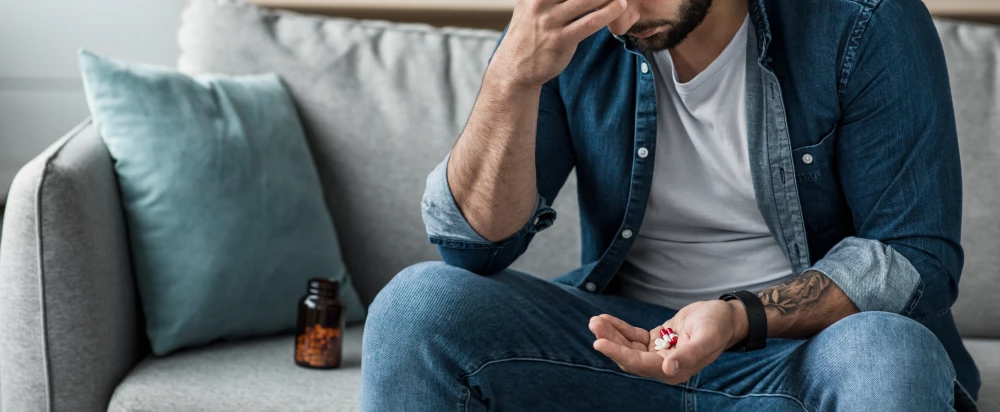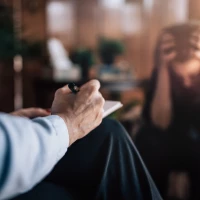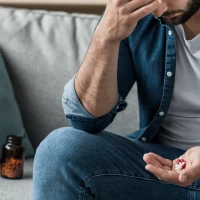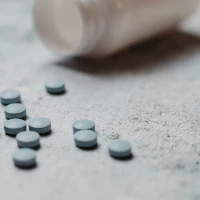
Exploring The Role Of Digital Detox In Modern Wellness

Do you or someone you know have a benzodiazepine addiction?
Overcoming a Diazepam (Valium) addiction can be difficult, however, with the help from our private drug rehabilitation centre in Cann Hall, you have a greater chance of recovery and a drug-free life.
Our team in Cann Hall is dedicated to helping individuals to overcome benzodiazepine addiction by providing a bespoke recovery programme that is tailored to the individual’s needs and unique circumstances.
Inpatient benzodiazepine rehab programmes help an individual to overcome their addiction by delivering residential treatment that helps them understand their addiction and teaches necessary skills to help them cope once they complete the programme.
These skills and new understanding provides the individual with the tools they need in order to manage their triggers and cope in day-to-day life, reducing the risk of a relapse.
The first step to recovery is to remove the substance from the body through a benzodiazepine detox.
This can be incredibly difficult to manage alone and can often lead to a relapse.
Benzodiazepine withdrawal symptoms can also be incredibly dangerous and even life threatening if not managed properly, which is why it is recommended to undergo a detox under the supervision of a professional.
Our private rehabilitation centre in Cann Hall can facilitate the safe removal of benzodiazepines from your body, helping you to manage the symptoms with a range of different detox treatments, getting you on the road to recovery.
In the UK, individuals struggling with a benzodiazepine addiction can get free access to services provided by the National Health Service (NHS), however, with such limited funding, there simply aren’t enough resources to meet the needs of all those seeking help.
This means many do not qualify for residential treatment on the NHS and those who do experience long waiting times before getting the help they need.
This is just one of the reasons why many individuals opt for private rehab treatment instead.
In 2012, the NHS’ National Treatment Agency for Substance Misuse UK carried out a study that analysed the success rates of every private rehab clinic in the UK.
Results from the study showed that the best performing facilities had the highest success rates, with 60% to 80% of individuals who received residential rehab treatment staying abstinent for at least five years following completion of the programme.
The best private residential rehab clinics saw success rates that were many times better than those achieved through NHS and community-based services.
These results demonstrate that you stand a much bette chance of achieving drug abstinence after five years by undergoing private residential rehabilitation.
Rehab experts have repeatedly affirmed that residential treatment at a private clinic works better than any other treatment option.
Benzodiazepine addiction can be challenging to overcome, but rehab can provide individuals with the tools and support needed to break the cycle and create healthier coping mechanisms to prevent relapse.
By addressing the root causes of benzodiazepine use, individuals in rehab can experience improved mental health and benefit from tools and skills designed to reduce symptoms of anxiety, depression, and other mental health disorders.
Long-term benzodiazepine use can cause physical harm, including liver damage and respiratory issues. Rehab can help individuals regain their physical health and prevent further harm as well as teaching them about the importance of a good diet, plenty of sleep and exercise in keeping both the mind and body healthy.
Rehab provides individuals with the opportunity to learn new coping mechanisms and healthy ways to manage stress and anxiety.
Benzodiazepine addiction, much like any other drug addiction, can have a negative impact on an individual's relationships which often leaves them feeling isolated and ashamed, adding to the negative feelings which trigger the addiction. Rehab works alongside families to offer them support and help rebuild trust with loved ones.
One thing that makes benzo addiction so hard to kick without the right kind of treatment is that it is often accompanied by a co-occurring mental health disorder such as anxiety or insomnia.
This is because individuals with an addiction to benzodiazepines often start out by taking it as a prescribed medication for these disorders and later become addicted.
Many people think that once they have removed the benzos from their system that they will be able to stay sober and lead a drug free life, however, addiction is a psychological disease that stems from an individual using benzodiazepines in order to cope with something in their lives, whether that be anxiety, insomnia, depression or stress.
This means that in order to tackle the benzodiazepine addiction and prevent a relapse, the root of the addiction must be treated through a range of psychotherapy treatment options such as cognitive behavioural therapy (CBT) and the 12 steps.
At our private rehabilitation centre in Cann Hall, we work with individuals to help them cope with whatever it is that may be fuelling their addiction and provide them with skills to avoid relapsing in the future following their treatment.
Benzodiazepines, or benzos for short, are drugs that are typically prescribed by doctors to treat anxiety, insomnia and seizures thanks to their calming effect.
Common benzodiazepines by brand name include:
Xanax (alprazolam)
Valium (diazepam)
Librium (chlordiazepoxide)
Ativan (lorazepam)
According to the National Institute for Health and Care Excellence (NICE) and the Royal College of Psychiatrists, benzodiazepines should be used for no longer than 2-4 weeks due to their highly addictive nature, however, despite these warnings, many patients are prescribed benzos for much longer.
Around two fifths of individuals who take benzodiazepines for longer than six weeks will develop an addiction and experience difficulties when trying to stop taking the drug.
A benzodiazepine addiction is the term used to describe when an individual is unable to stop taking the drug despite the negative consequences they may face as a result of doing so.
As benzos are so commonly used to treat anxiety, when an individual suddenly stops taking them, they may find themselves no longer able to cope and continue taking benzodiazepines for longer than prescribed in order to manage their anxiety or insomnia.
Over time, they will develop a tolerance to the drug, meaning they will need to take more in order to feel the same calming effect as they once did when they first started taking benzodiazepines.
After a long period of usage, the individual can also become physically dependent on benzos and experience severe withdrawal symptoms when they try to stop taking them.
Benzodiazepines can produce both mild and intense withdrawal symptoms, including:
Dizziness
Blurred vision
Abdominal cramps
Intense anxiety, including physical symptoms such as a fast heartbeat, sweating, trembling and a difficulty breathing
Face and neck pain
Loss of appetite
Nausea
Vomiting
Depression
Tinnitus
Unsteadiness
Weight Loss
Nightmares
Insomnia
Panic attacks
Increased sensitivity to light, noise, touch and smell
Burning sensations in the skin
Delusions
Memory loss
Paranoia
Seizures
Psychosis
Regaining control over your benzodiazepine addiction is absolutely essential as it can be fatal.
Due to the natural process of building a tolerance, over time, individuals will require a higher dosage of benzos to get the same effect.
This can lead to the individual using dangerous amounts of the drug and overdosing, which can result in a range of serious long term effects such as pneumonia, muscle damage, brain damage and death.
Signs of a Benzodiazepine overdose include:
Difficulty breathing
Bluish fingernails and lips
Confusion and disorientation
Extreme dizziness
Weakness
Uncoordinated movements
Tremors
Stupor
Coma
The time it takes to overcome addiction can be different for everyone. Some individuals may require just 30 days of benzodiazepine addiction treatment in order to get on the road to recovery, whilst others may take 3 months- it all depends on the individual and the severity of their addiction.
At our private inpatient rehabilitation in Cann Hall, we can provide support for as long as is needed to tackle the addiction.
Before starting the benzodiazepine addiction treatment process, the individual must first recognise their addiction and want to stop using the drug.
Sometimes, an individual can recognise their problem on their own, while other times it may be necessary for friends or family members to stage an intervention.
Some signs of benzodiazepine addiction that friends or family members may look out for are:
Frequent mood swings
Mental confusion
Manic moods
Unwillingness to do tasks which require long periods of attention
Poor performance at school or work
Muscle weakness
Slurred speech
Lack of interest in things they once enjoyed
Feeling unable to cope with the day without taking benzodiazepines
Reaching out for help is the very first step to recovery. Get in touch for a confidential assessment with our compassionate team of professionals today to discuss how benzodiazepine addiction treatment can help you on the road to recovery.
Drug Rehab - https://rehab-centre.org.uk/london/cann-hall
Alcohol rehab - https://rehab-centre.org.uk/alcohol-addiction-rehab/london/cann-hall
Gambling addiction rehab - https://rehab-centre.org.uk/gambling-addiction/london/cann-hall
Cannabis rehab - https://rehab-centre.org.uk/cannabis-rehab/london/cann-hall
Diazepam rehab - https://rehab-centre.org.uk/benzodiazepine-rehab/london/cann-hall
Ketamine rehab - https://rehab-centre.org.uk/ketamine-rehab/london/cann-hall
Cocaine rehab - https://rehab-centre.org.uk/cocaine-rehab/london/cann-hall
We cover Cann Hall (London)




